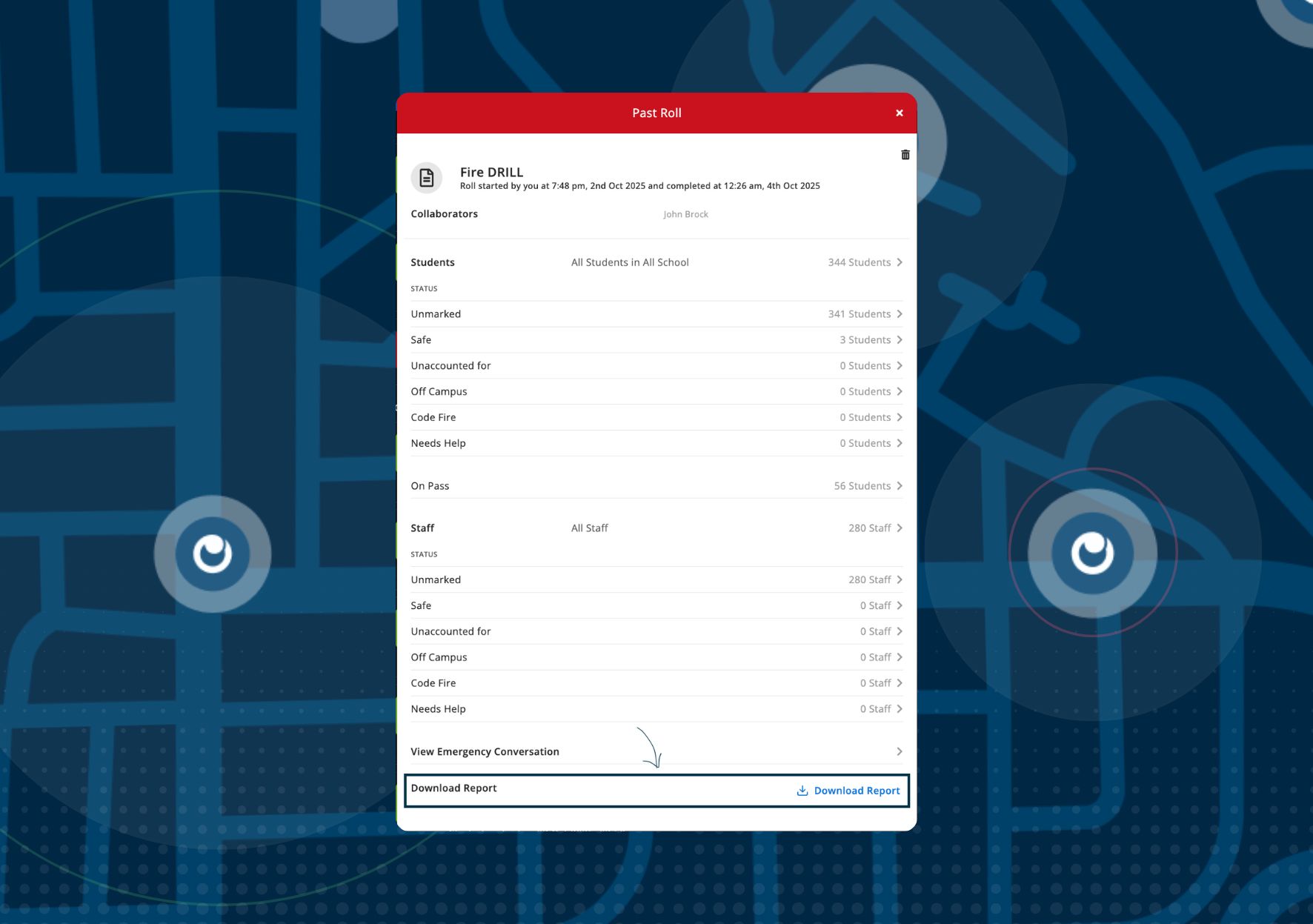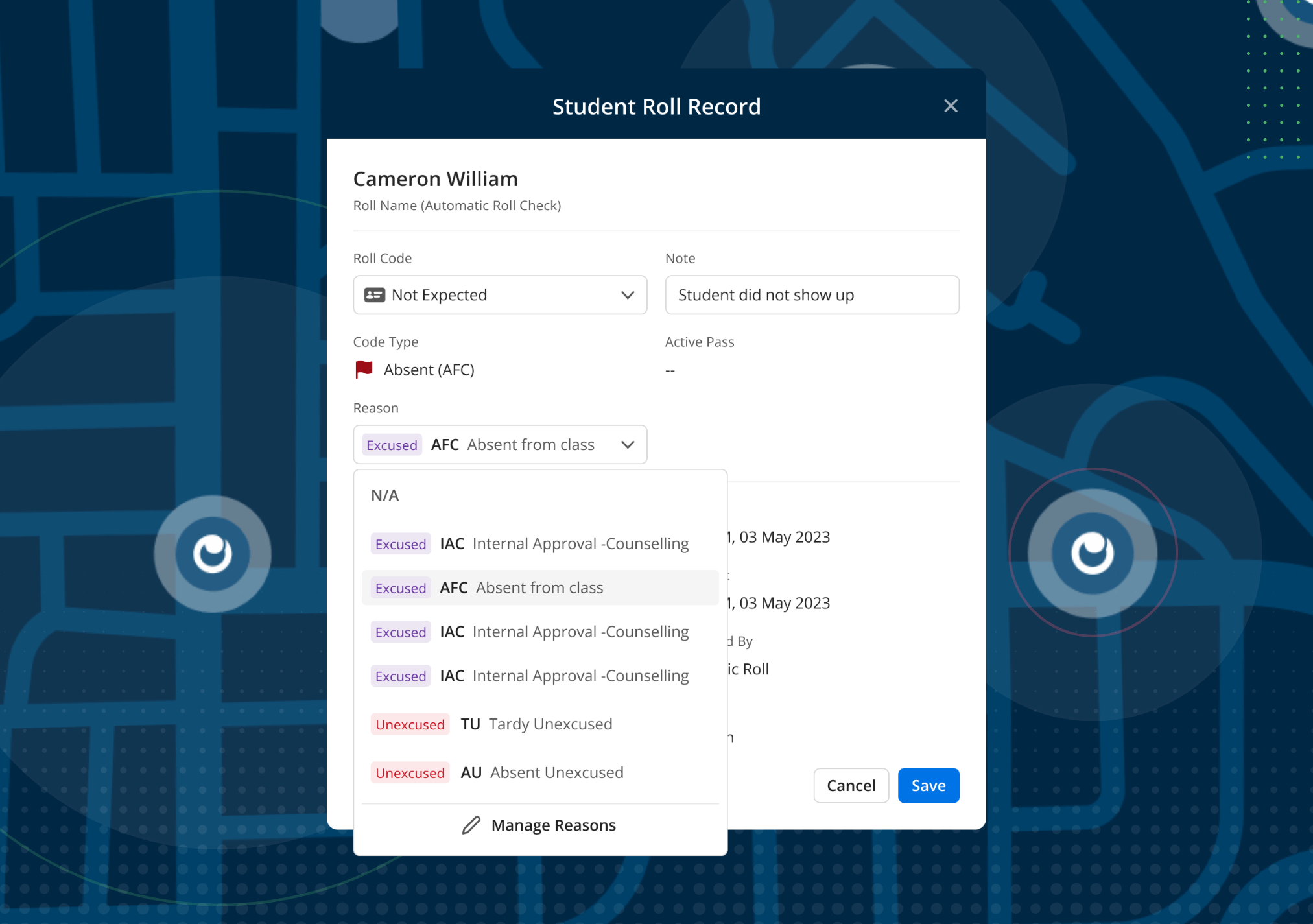15 Time Management Tips for Boarding Faculty and Staff
Vincent Paget
•
March 11, 2019

Working in boarding requires you to have good time management skills if you want to stay on top of everything… But the nature of boarding doesn’t make this an easy task.One minute you might be trying to finish off some paperwork, and the next you might be helping a child that needs your support… Or you might find yourself scrambling to check where your students are after someone set off the fire alarm with a burnt bag of popcorn.From our experience of talking to hundreds of boarding staff from around the world, we understand the demanding and overwhelming role you play.Looking after boarding students is a demanding role and it can be difficult to find time to spend with your family when you're on call 24/7.However, while you cannot control the unpredictable nature of boarding, you can prepare and manage your time in a way that’ll help you better handle any issues that pop-up.Below are 15 actionable tips you can put into action straight away to increase productivity and boost your time management skills.
Organising your tasks
Time management is all about being organised. Good organisation will help you to maintain a sharp mind, keep track of everything and ultimately be more flexible to handle any boarding issues that pop-up.
1. Start with a time audit
A great place to start is to understand how you're currently spending your time.Keep track of your activity for an entire week. Record everything down in a notebook or spreadsheet and at the end of that week, tally up how much time you spent in specific categories. This could include technology, administration, dorm duty, meetings, teaching, supervising etc. The more specific the better.This simple exercise will help you to understand and identify what your biggest time wasters are and where your time is best spent. This new perspective will give you a good starting point for you to organise your time efficiently and make big improvements to your time management.
2. Use a proven productivity system
Using the right productivity method can make a huge difference in your everyday life. It can take you from being overwhelmed, unfocused and rushed to feeling calm, in control and prepared to take on anything that comes your way.There are thousands of different productivity systems out there, each with their own unique approach to getting things done, so it's important that you find one that suits your unique personality and boarding environment. Below are 2 popular and useful productivity methods I recommend you have a look at.Useful reading:The Ultimate Guide to Personal Productivity Methods

- Getting Things Done - Invented by productivity guru David Allen, Getting Things Done (GTD) is probably the most famous and enduring productivity method around. It aims to remove the stress of having too much on your place by taking your ideas outside of your head and putting them in an organised system.This system helps you to focus on what you need to get done while also giving you the capacity to react appropriately to any surprises that may pop up.Watch this ted talk for a quick overview of David Allen’s theory- Stephen Covey’s Time Management Matrix - This technique helps you to identify which tasks are priorities and which are distractions. The matrix visually organises your tasks into 1 of 4 quadrants to determine the priority of each one. The quadrants allow you to prioritise your tasks in relation to "Importance" and "Urgency" to help you quickly decide if you need to address a task immediately or if you can postpone it for later.Further reading:Stephen Covey’s time management matrix explained
3. Use a task management tool
With a proven productivity system in place, you’ll need a tool to help you implement and maintain that system.Notebooks, folders and spreadsheets are okay, but if you really want to be a master of your own time, then you'll need to take advantage of the powerful features technology can offer you. Here are a few popular task management tools I recommend you try:- Trello - This is one of the most simplest task management tools you'll find. It's based off the Kanban productivity technique, which is kind of like the online version of writing things down on post-it notes and moving them around on a whiteboard. It’s incredibly powerful, easy-to-use and great if you like to see all your tasks at a glance. Trello is also very handy for collaborating with others and integrating with a range of popular apps such as Email, Google Drive, Dropbox, your calendar and many more.- Wunderlist - This application combines To-do lists, reminders and notes all into one tool to help you stay organised and get things done. Wunderlist is great for capturing anything that’s on your mind, creating multiple lists and collaborating with others on similar projects.Further reading:40 of the Best To-Do-Apps for Personal Task Management
Planning your day
Planning how you are going to spend your time each day will help you to maintain focus and stay on track throughout the day. Here are some tips to help you plan your time effectively:
4. Take the first 30 mins of everyday to prioritise your tasks
There’s a difference between being time efficient and being time effective. Spending your time to complete unimportant tasks might be efficient, but it isn't the most effective use of your time. To be effective with your time, you need to prioritise tasks that are urgent and important over other smaller tasks.Identifying your top 3 high priority tasks in the first 30 minutes of your day will help you to minimise interruptions and avoid the natural tendency to concentrate on simple and easy tasks that aren’t the best use of your time.
5. Factor in how long each task will take
How often has something taken you longer than expected?For some reason, we regularly underestimate how long something will take us and end up putting too much on our plate. The added pressure can lead to stress and decreased performance in your work.So when you're planning your next day, try to factor in how long something will practically take you. Pay closer attention to how long you spend on each task and if you have one, refer to your time audit for more accurate guidelines.
6. Schedule time for interruptions
Boarding is a people-based environment and you can't predict how your day is going to play out. That's why you should try to factor in extra time for things that may interrupt you from your main priorities. Try adding some extra time to each task or plan to do your urgent/important tasks at a time you know will be quieter than others.
7. Don’t forget to schedule personal time
We all know how busy term time can get, but working on all cylinders with little sleep can soon lead to burnout, stress and complacency. You need to be at your best to tackle each day and you're no good to your boarder's, your school, your family or yourself if you're ill.When you're planning your day, try setting some time aside to do some exercise, read a book or spend some time with your family.
Work smarter, not harder
Being on-call means that you need to make the most of the time you have. Here are some extra tips to help you to work smarter to be more efficient and productive with your time:
8. Don’t check email first thing in the morning
Email can be distracting and entirely time-consuming. A single email can soon turn into something else entirely and that’s not a very productive way to start your day. Even if you just check your email with the intention to deal with it later, you’re mind will be distracted and you won’t be focused on what you need to get done that day.Start the day off right and put checking your email on hold for a while, at least until breakfast. A couple hours of quiet in the morning isn't going to do anyone any harm. And if something is really urgent, they can call you or leave a message.However due to the nature of boarding, it may be necessary for some of you to check your email first thing. If this is the case, make sure you only respond and act on the most urgent messages and plan a time to get back to the rest of them later in the day.
9. Take advantage of technology
A lot of areas of your daily routine can be taken care of or at least assisted with the help of technology. Technology is possibly the quickest and fastest way for you to improve your efficiency and productivity.There’s an app for just about anything these days. You can use technology to help improve communications, create and share documents, automate tasks and collect news articles.But perhaps one of the most useful pieces of technology you can invest in is a boarding management system like Boardingware. Boardingware has been proven to save boarding professionals hours of time with their administration process by helping you to keep track of your boarding students, process leave requests, manage attendance, daily check-in’s and pastoral care online.Free Resource:Download this guide to learn about 7 free applications you can use to improve your boarding efficiency
10. Separate creative and brain-dead tasks
You might have already noticed that you experience different energy levels throughout the day. There are times of the day when you're alert and focused, and other times when you're tired and groggy.[Ultradian rhythm diagram]That's because the energy functions of our brain operate in natural cycles called "Ultradian Rhythms", and those who work with their natural cycles instead of against them are likely to be more productive.So it might be a good idea for you to start paying more attention to your natural cycles. Try tackling more challenging tasks during periods of high energy and leaving less mentally demanding jobs for your down periods.
11. Don’t multitask
Multitasking is a lie... Why?Because our brains aren’t designed to focus on two tasks at once. Each task requires some level of focus and attention and when you try to take in and process more than one at a time, your brain power reduces dramatically.When people think they are multitasking, they’re actually just switching from one task to another very rapidly and this comes at a cost. It makes it difficult to organise important thoughts, filter out irrelevant information and reduces the efficiency and quality of your work.If you focus on a single task at a time, you will achieve a lot more a lot faster and you’ll have a far greater capacity to respond and react to any unexpected surprises.
12. Declutter regularly
An important part of staying on top of all your jobs is to keep a clear head, and the best way to do that is declutter regularly. Carry a notebook or use your phone to write down anything that distracts you or any thoughts you get during your day. Random thoughts, new ideas, annoying colleagues, feelings… Just write it all down.Then at the end of each week, review and declutter your notes. If a note has some substance, organise it into your productivity system. If it doesn’t, throw it out. Doing this regularly will help you to maintain a clear mind, eliminate distractions and increase your focus throughout the day.
13. Daydreaming is good for you
When you work hard, your mind and body need to recover, and you need to give it the opportunity to do so. Short 15 minute breaks are a great way to refocus and stimulate your brain in-between tasks. Try reading a book, going for a walk or talking to a student.Studies have even showed that taking breaks can boost creative thought and help you to solve some of your troubling issues - You might have experienced this while driving or in the shower. That's because you give your brain the opportunity to wander and think creatively, which creates the illusion of a breakthrough that seems to come out of nowhere.Further reading:The science of taking breaks at work
14. Respect your need for sleep
Do you get enough sleep? I understand that boarding is a 24/7 environment however, you still need to respect your need for sleep. Your mind and body needs sleep to recharge so you can be at your best the next day.Staying up late to accomplish more hurts you in the long run. You might complete all your tasks but your overall performance will be likely to have decreased. Try making more of an effort to go to bed at the same time every night and get a good 7-9 hours of sleep in.
15. Stress Is a time waster
We all get stressed from time to time, some more than others. However, stress often achieves nothing, It’s a wasted emotion. It decreases our performance, creates frustration and is a big time waster.Everyone manages stress differently. Some thrive in stressful situations and others succumb to the pressure. Either way, we all should find a way to manage our stressors in life. Here are some techniques to try next time you’re feeling stressed:- Exercise - Indulging in some physical activity can do wonders for your mind and body. A light jog or a brisk walk is enough to get the “feel good” endorphins flowing so you can get pumped and ready to get back to work.- Meditate - Meditation can help to calm the mind and challenge your thoughts and perspectives on your stressful situation. Stress is created in the mind and anything you create can be managed. Popular smartphone apps like Headspace have made it easier than ever to meditate at anytime of your day.- Sleep - Sometimes stress can be caused by a lack of sleep. If you’re suffering from a lack of sleep, try and find some time during the day to sneak away for a 20 minute power nap. A nap of even 10 minutes has been shown to improve cognitive function and decrease fatigue.
Now It’s Your Turn
I’m sure you have your own tips and techniques for managing time in your boarding environment, however I hope some of these tips still resonated with you in some way.If you’re willing to share some of your wisdom with the other boarding professionals who also read this blog please feel free to leave a comment below or tweet us @Boardingware with #BoardingTips.I’m sure we’d all appreciate the opportunity to learn from one another.
Download your guide to knowing where students are
When you sign up, we'll send you a guide detailing what it takes to setup your daily operations to maintain student location awareness using your routine school processes like attendance, student leave, late arrivals, early dismissals & emergencies. You'll also recieve an invite to join the Orah community and get the quarterly newsletter.














